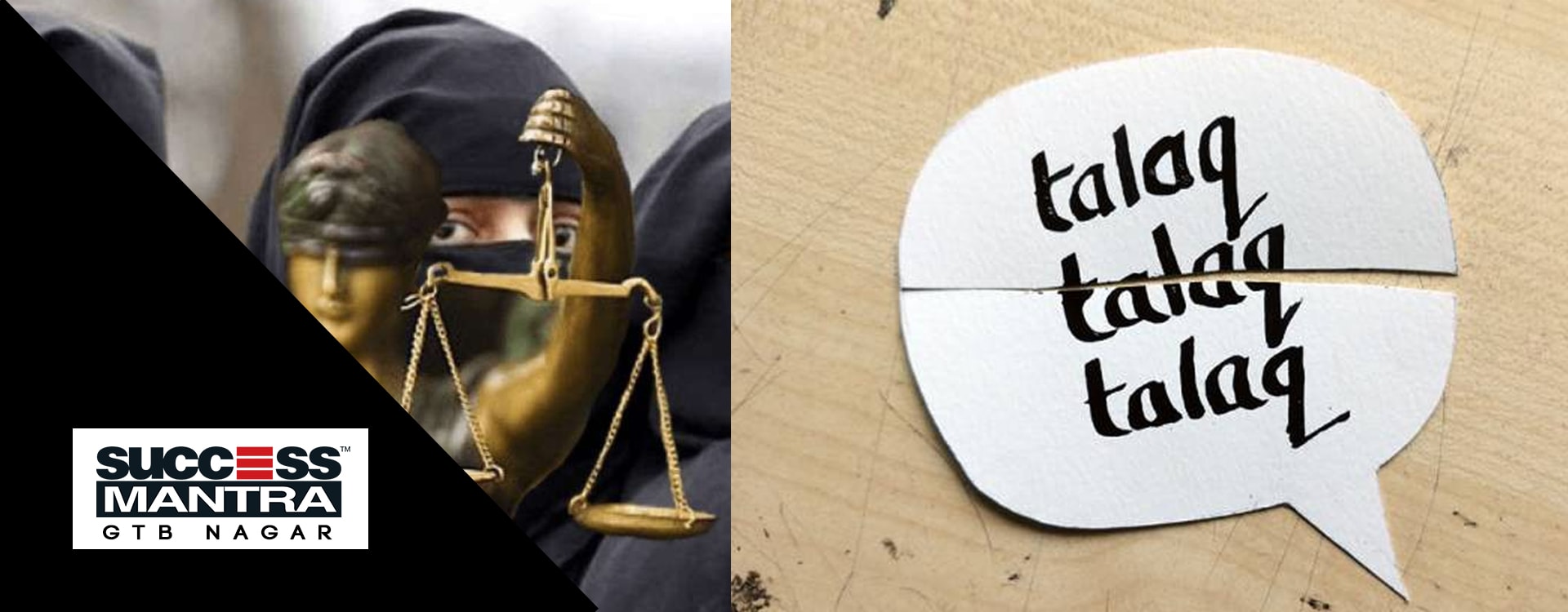
MUSLIM WOMEN BILL
INSTANT TRIPLE TALAQ BANNED IN INDIA - A STEP TOWARD WOMEN EMPOWERMENT
1 August 2019 was etched as a golden day in Indian history with the Muslim Women (Protection of Rights on Marriage) Bill getting assent of the President to ban triple talaq in India. This progressive law is another step towards women empowerment and gender equality.
TRIPLE TALAQ EXPLAINED
Talaq-e-Biddat is a form of triple talaq that gave the right to Muslim men to divorce their wives by pronouncing the word ‘talaq’ thrice either by phone, emails or social media such as Facebook, Whatsapp etc. There was no need of the wife’s physical presence and any reason for the man to provide any reason for his actions. It was mandatory to pronounce these three words in one go. In case, the couple wanted to revoke this divorce, it was mandatory for the women to undergo Nikah halala, get divorced, observe the three-month iddat period and return to her husband. The divorced women didn’t have the custody of her children. Nikah Halala is a practice under which the divorced Muslim woman was expected to consummate a marriage with another man. This age old practice is banned in many Muslim countries such as Pakistan and Bangladesh.
THE LEGAL HISTORY
The case was called Shayara Bano V/s Union of India and others. On 22 August 2017, the Supreme Court of India ruled out the practice of triple talaq to be unconstitutional and declared it void and illegal. The judgment was given by a five-judge bench of the Supreme Court headed by the then Chief Justice of India J S Khehar. The bench comprised Justices S Abdul Nazeer, Kurian Joseph, RF Nariman and UU Lalit along with the CJI. It set aside the practice by a majority of 3:2 ruling with Justices Kurian Joseph, RF Nariman and UU Lalit declaring it unconstitutional and the then CJI Khehar and Justice S Abdul Nazeer uphelding the practice of triple talaq.
The Government of India had promulgated the Muslim Women (Protection of Rights on Marriage) Bill, 2017 that was opposed by majority of the opposition parties and could not be passed in the parliament. The government ensured that it upheld the ruling of Supreme Court by passing the Muslim Women (Protection of Rights on Marriage) Ordinance, 2018. It later came out with the fresh Muslim Women (Protection of Rights on Marriage) Bill, 2018 which couldn’t be passed because of the dissolution of the sixteenth Lok Sabha. However, as the ordinance was about to expire on 22 January 2019 the government took notice of this fact and got the Muslim Women (Protection of Rights on Marriage) Ordinance, 2019 approved on 12 January 2019.
The Muslim Women (Protection of Rights on Marriage) Bill, 2019 was introduced in the seventeenth Lok Sabha as a fresh bill on 21 July 2019. It was passed by Lok Sabha on 25th July 2019 and then by Rajya Sabha on 30th July 2019 in a historic move. The bill got the Presidential nod on 1 August 2019 and has become a law in the country.
FEATURES OF THE Muslim Women (Protection of Rights on Marriage) Bill, 2019
- The bill defines talaq as talaq-e-biddat or any other similar form of talaq pronounced by a Muslim man as instant and irrevocable divorce.
- All declarations of talaq, including written or electronic form have been declared void and illegal.
- Tripple talaq has been declared cognizable offence that attracts upto three years of jail. A cognizable offence is one for which a police officer may arrest an accused person without warrant. However, it will be declared cognizable only if information relating to the offence is given by the married woman (against whom talaq has been declared), or by any person related to her by blood or marriage.
- The Magistrate has the power to grant the bail to the accused man only after hearing the case from woman who has borne the brunt of instant triple talaq. The Magistrate also has the power to compound the offence in case the woman allows the same. Compounding is the process of stopping the legal proceeding to settle disputes. This will be possible on the woman’s request only.
- The woman will be entitled to the subsistence allowance and is entitled to seek the custody of her children. The amount of subsistence allowance will be entirely in the hands of magistrate.
The Muslim Women (Protection of Rights on Marriage) Bill, 2019 has banned the practice of instant talaq or talaq-e-bidat. However, talaq-ul-sunnat, which is considered to be the ideal form of dissolution of marriage contract among Muslims is still valid in India. Under this, if the husband pronounces talaq, the wife has to observe a three-month iddat period covering three menstrual cycles. During this time period, the husband can arbitrate and re-conciliate with the wife and if the things work out between the couple during these these three months, the talaq is revoked. However, when the period of iddat expires and the husband does not revoke the talaq either expressly or by consummation, the talaq is irrevocable and final.
It is necessary to understand that the practice of instant triple talaq was a redundant practice that deprived Muslim women of their basic rights. As a country, it was the duty of government and law makers to do away with these archaic practices and provide a conducive environment for the women to grow.













Ruchi Pathak
Amazing write up !
Anshika pathak
I read this content for this topic.“Great share!”
aaghaazehaj
Assalamualekum, JazakAllah Khair for this informative blog. May Allah bless you with this consistent knowledge and help you grow as well as others grow by reading from it. <a href=https://www.aaghaazehaj.com/umrah-packages>Umrah Packages</a> <a href=https://www.aaghaazehaj.com/umrah-packages>umrah packages from delhi</a>
Ajit pawar
This article very important for muslim women in India.